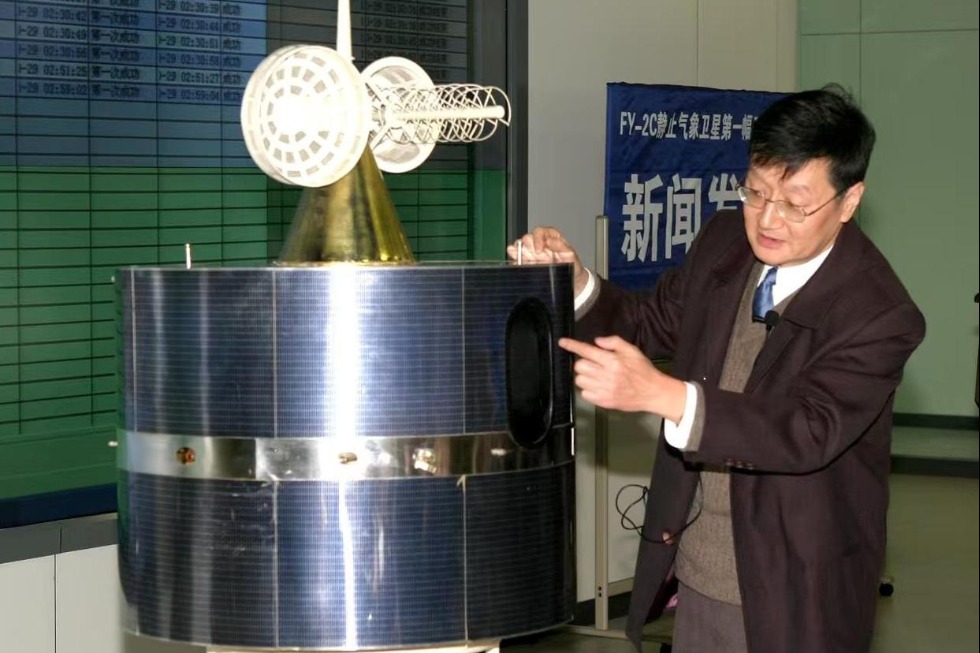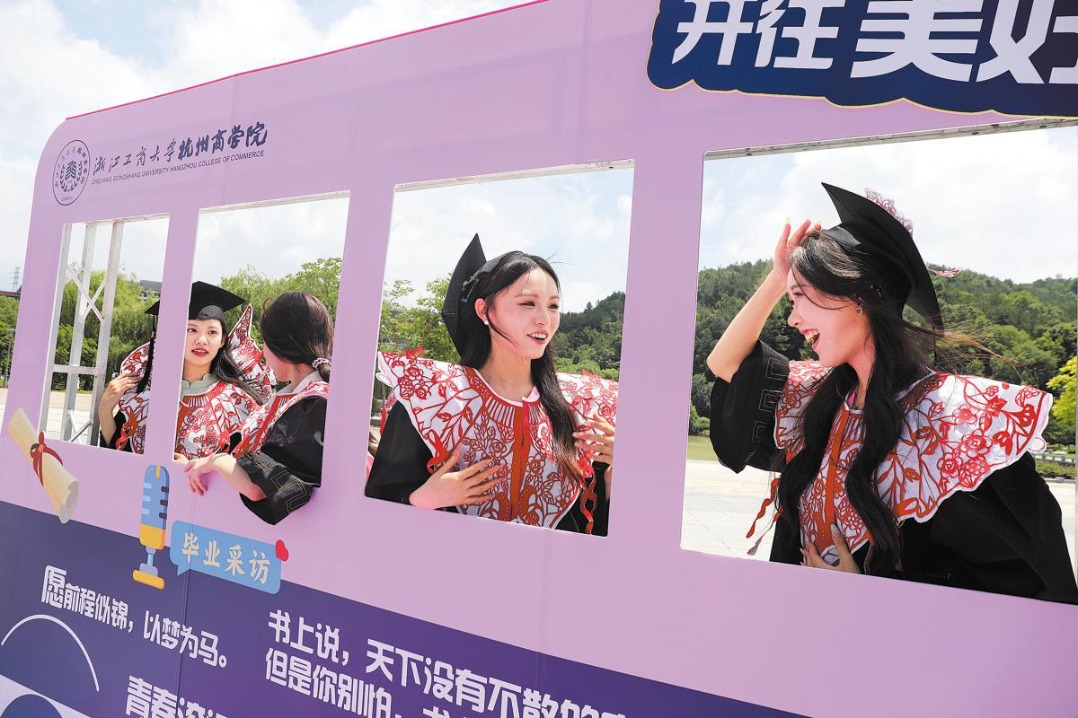Local leader empowers remote mountain village

Though many years have passed, Wang Xiaobing still vividly recalls the staggering poverty that plagued Ahou village in the remote mountains of Liangshan Yi autonomous prefecture in Sichuan province.
Wang, 50, an employee of the Xide branch of State Grid Sichuan Electric Power Co, has served as the first Party secretary of the Yi ethnic village since January 2017.
Over the years, he has guided villagers to upgrade infrastructure and develop local industries, lifting them out of poverty. Their average annual income surged more than tenfold, from 1,500 yuan ($205) in 2015 to 18,259 yuan in 2024.
Two decades ago, Wang came to the village to install the power facilities that would connect it to the power grid for the first time. He and his colleagues spent hours climbing a mountain to reach the village at an altitude of nearly 3,000 meters.
"Back then, there was only a muddy path leading to the village, so rugged that our car couldn't get through," he said. "We had no choice but to walk the rest of the way."
When they finally arrived, Wang found shabby houses, barren land and children in tattered clothes.
In line with China's targeted poverty alleviation campaign, which aimed to eradicate extreme poverty nationwide by 2020, State Grid Sichuan Electric Power Co began to provide paired assistance to Ahou village in 2016.
At that time, the village remained mired in poverty. One-third of its population lived below the national poverty line, meaning their per capita annual income was less than 2,952 yuan.
To help villagers shake off poverty as soon as possible, the company appointed an employee as the village's first Party secretary. Wang, an ethnic Yi, was among the candidates.
"I was really torn," he said. "I wanted to help the villagers but was worried that my elderly mother and young children might lack proper care." Wang's wife, who was teaching at a remote village school, could hardly return home.
It was his mother's words that ultimately convinced him. She told him, "I can handle things at home. You should take this opportunity to help our impoverished fellow Yi people."
Upon arrival, Wang started to visit every impoverished household, building relationships while documenting each family's specific challenges and needs.
The families were scattered across more than 20 square kilometers of mountainous terrain, most of which was only reachable on foot.
Learning that generations of villagers had made a living by growing crops with low economic value, such as potato, corn and buckwheat, Wang decided to lead them in planting more profitable traditional Chinese medical herbs, including Fritillaria cirrhosa, Lilium pumilum and Prinsepia utilis.
He established an agricultural cooperative, transferred the landuse rights of 18.6 hectares of abandoned land and brought in experts to provide cultivation guidance.
The village also diversified its livestock breeding with Wujin pigs, capons and high-altitude sheep to bolster the collective economy.
Villagers could earn wages at the cooperative, which began distributing annual dividends to each household in 2019. Total payouts reached 881,900 yuan as of 2024.
Meanwhile, the village's infrastructure, including the power grid, roads and housing, underwent extensive upgrades, including access to broadband internet.
Believing education is the key to breaking the poverty cycle, Wang devoted himself to helping village children receive an education and vocational training, empowering them to reshape their destinies with knowledge and skills.
Before his tenure, the village had only one male college graduate. Thanks to Wang's efforts and the guidance of master's and PhD graduates at the company, that number has increased to 16, including four females.
When widow Aniumu's eldest son prepared to drop out after primary school to help the family, Wang donated 2,000 yuan and arranged his admission to a county middle school. Today, the young man operates excavators with a stable monthly income of about 7,000 yuan.
After the victory in poverty alleviation, Wang had chances to return to his original post, but he didn't leave the village.
"The villagers' sincerity moved me to stay for rural vitalization," he said.
When villagers learned that he might leave, they grew worried and began visiting him daily. Some older residents even wept in front of him.
After Wang chose to stay, they still visited him often and brought homemade cured pork, sausages and buckwheat cakes. To prevent his refusal, they'd toss the food to him and dart away before he could react.
Now that the village has been lifted out of poverty, Wang's priority is to raise villagers' incomes further and avoid going backward. His goal is to increase their per capita annual income to 20,000 yuan this year.
- Shanghai museum displays ancient civilization of Hongshan Culture
- China to work with militaries of other SCO member states to further deepen defense ties
- Former vice-governor of Yunnan sentenced for life
- First investigation results on black soil in Northeast China published
- China says willing to work with SCO nations to ensure stability
- Thousand yogis ignite Shanghai





































